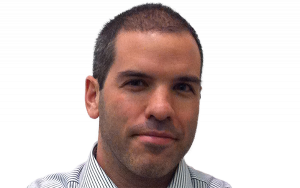It was my first year as a teacher, on a staff development day, and I was sitting in a classroom with 20 other teachers. Our local instructional superintendent was presenting the new literacy program. A lot about the program seemed very exciting, although I still had a question. I raised my hand and said, "This looks great, but I'm worried that all of the books are at grade level and most of our students are currently reading two to three years below grade level."
The presenter paused briefly and replied, "All of our students in district 9 are reading at grade level."
Now, I wish this was true, but I knew it wasn't. I had assessed all of my students, and what was true for them was true across our middle school, located just a few blocks from Yankee stadium, in the South Bronx. Most of our students were reading at a third-grade level, despite sitting in fifth-, sixth-, seventh- and eighth-grade classrooms.
I learned right there, at that early stage of my career, that even while we talk of reform, change, improvement and new initiatives there are still many conversations we don't have.
Many of the people with the power to lead shy away from these conversations because the enormity of the true challenge is too daunting, or the admission that there is no single easy solution is too scary.
Often it is because those entrusted with the power to lead for students have an equal or greater interest in preserving their own share of power and influence. I've seen this avoidance play out when we talk about student achievement, when we talk about serving our highest-need students and, sadly, when we speak about parents, families and guardians.
Over the last 12 years, I have been working in public schools in the Bronx, in some of the highest-need communities that have the most amazing and resilient young people in our country. I have been a middle school teacher in a big failing school and in a new small school. I have served as the union chapter chair at my school. I have been the principal of a district middle school and the founding principal of a charter high school whose mission was to serve students who have fallen behind in school and who have a history of involvement in the criminal justice or foster care systems.
While I wore many hats during my time in education, the essence of my work has always remained the same — to partner with others doing whatever it takes together to get young people the quality education they deserve. My partners have come in all shapes and sizes — they have been teachers, counselors and social workers, assistant principals and principals, superintendents and network staff, non-profit and community-based organizations, politicians and union leaders, caseworkers and police officers, and of course my students and their families.
What they all had in common was a shared set of beliefs — that the quality of education that many young people receive is terribly unjust, and that we all have a role and an obligation to change this status quo.
Like most educators, I know that students have the best shot at success when schools engage with parents as true partners in their children’s education. Unfortunately, I see that parents rarely have the access and information to advocate for their children and they rarely find willing partners in schools and districts. Parents are rarely embraced as partners for change. They are given passive roles in the quality of their children’s schools, told to help staff events or plan bake sales.
I wish I could write that my belief in the empowerment of families and parents as a key driver for change comes from just one experience. However, in my direct work with thousands of families over the past 12 years, I’ve heard similar refrains more times than I can count; “No one will listen to me,” “No one will answer my questions,” or ”I’ve tried everything and nothing has changed.”
I’ve seen that in communities where great schools are most needed, where we spend the most time talking about and working toward change and progress. It is more the rule than the exception that educational institutions miss the opportunity to allow parents to advocate and work for what is best for their children.
Imagine for a moment that you are a parent of a child in a community with a persistently failing school. Like any parent, anywhere, you want what is best for your child. How do you know if your local school will ensure that your child will be able to read at grade level, or will help them learn English or meet their special needs?
For too many of the families I have worked with, the only option available was to merely hope for the best. Maybe you are lucky enough to be selected in a charter lottery or have your child be selected for a magnet program. Maybe you win a different kind of lottery, and your child’s first grade teacher is among the many great teachers and not among the many inadequately trained and inadequately supported teachers. You place your faith that a superintendent you’ve never met and who will never sit across the table from you hires the right principal and gives this leader the right resources, support and level of accountability.
Now, imagine that when it came to your child, the most important thing in the world to you, all you could do, all that you were allowed to do, was to hope, to trust, and to rely on luck. Parents in wealthier communities would find this completely unacceptable. Why do we continue to accept this as a society for families and children from higher-need communities?
This is why I am excited to join Parent Revolution and lead the organization through its next chapter of impact for students and families. Families in every community deserve more than hope or a roll of the dice — they deserve information, access to the system, and real power to make changes for their kids and their communities. They deserve the power to take action and affect change in their children’s education and lives.
For too long parents in communities like the South Bronx, South Los Angeles, and elsewhere have been on their own. We will continue to support them and help them take action together on behalf of their kids. As I enter this work I look forward to working in partnership with parents, other organizations, schools and districts, educators and the communities we serve. It will take all of us to deliver on our obligation to our children.
Get stories like these delivered straight to your inbox. Sign up for The 74 Newsletter


;)
